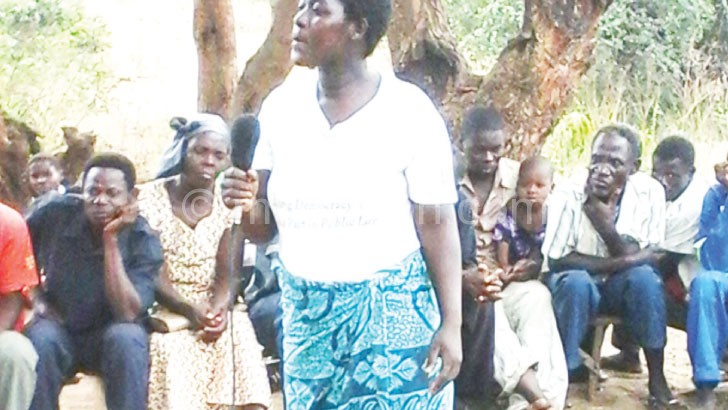Empowering women to fight gender abuse
Last year, Ella Lukhele, a single mother of two girls, registered for the Farm Input Subsidy Programme (Fisp). She says she qualified as a beneficiary due to her poverty.
However, when 23-year-old Lukhele went to receive her coupons for buying subsidised fertiliser, she was told that she had been deregistered.
After being sent back and forth several times, she later received her two coupons. However, not long after, Lukhele was summoned by the police to explain why she received the coupons when she had been deregistered.

In the process, her father was jailed and fined K10 000, a goat, two chickens and to return the coupons.
“All this happened late last year. We could not afford to pay the fine. When my father was in jail, someone told me to report the issue to Ecumenical Counselling Centre (ECC) for help. The proceedings lasted 10 months before it was settled,” says Lukhele.
ECC is an implementing partner of the Gender Equality and Women’s Empowerment (Gewe) project being implemented in 13 districts in the country.
According to the beneficiary list, Lukhele was selected as a beneficiary, due to her poor economic situation. Her husband deserted her before their second child was born and he has not returned since.
Lukhele is not the only woman being victimised because of her gender. Jessie Chirwa of Mzukuzuku Village in Mzimba was abused by her husband for over 10 years. In fact, the abuse only stopped when the husband died.
“He never let me do any income generating activity. He would beat me up for no reason, but I was afraid to talk to anybody because he threatened me. He was also a drunkard,” Chirwa says.
She later joined Temwanani Irrigations Scheme, which is supported by Gewe.
Chirwa also joined a village savings loan (VSL) group and realised some money which she used to buy tomato seedlings. She has a garden where she grows tomato and beans, and says she is happier now than she has ever been in years. She plans to build a house if her business succeeds.
“I have seven children and I am able feed them and send them to school,” says Chirwa.
She now counsels fellow women that are experiencing abuse.
“We need to help each other avert such situations at all costs. Men and women should live together happily and women must be allowed to take part in the same activities as men,” she says.
Social welfare officer for the project, Dennis Gondwe, says most women are victims of domestic violence as some men do not allow their wives to do any kind of business.
Gondwe says cultural practices that affect girls’ education and women empowerment are breeding gender-based violence (GBV) at household level.
“We try to intervene where we can, but there is a lot that needs to be done if we are to empower women. We are also using women whose lives have improved to help uplift the lives of thousands of women who are afraid of coming out of their cocoons. So far, it has been a struggle but with time we will get there,” he said.
A Gewe project officer in Mzimba, Lemani Kayira, said most women are married off to men by their parents who want to get dowry as such it becomes expensive to break off the marriage even when the husband is abusive.
Kayira further said, the project is focusing on creating awareness with chiefs and communities to address issues of GBV.
“We need a holistic approach to addressing GBV. Family desertions are common in this district as men trek to South Africa for greener pastures.
“Mzimba is also a big district and to reach to all areas is a challenge. But our aim is to reach all areas so that men stop abusing their wives,” he said. n





